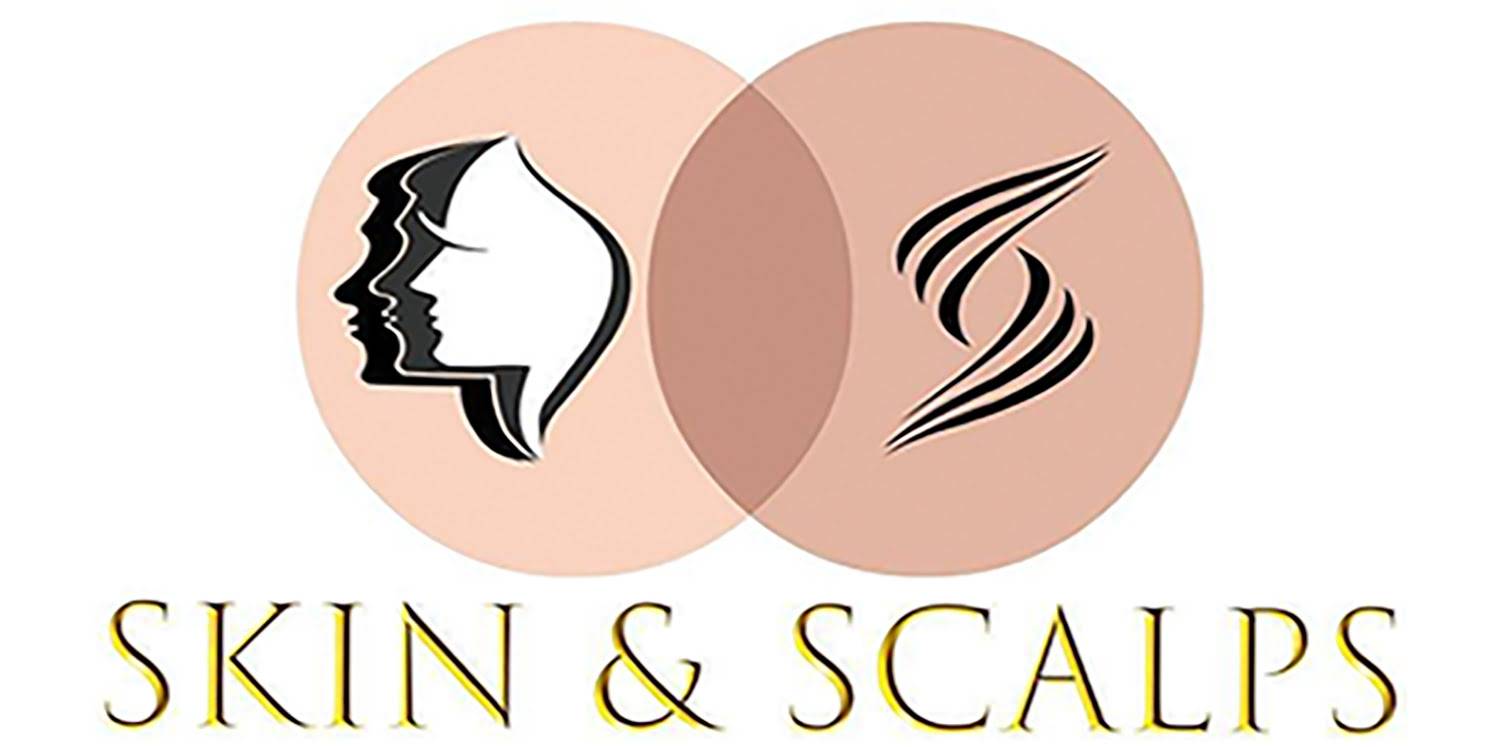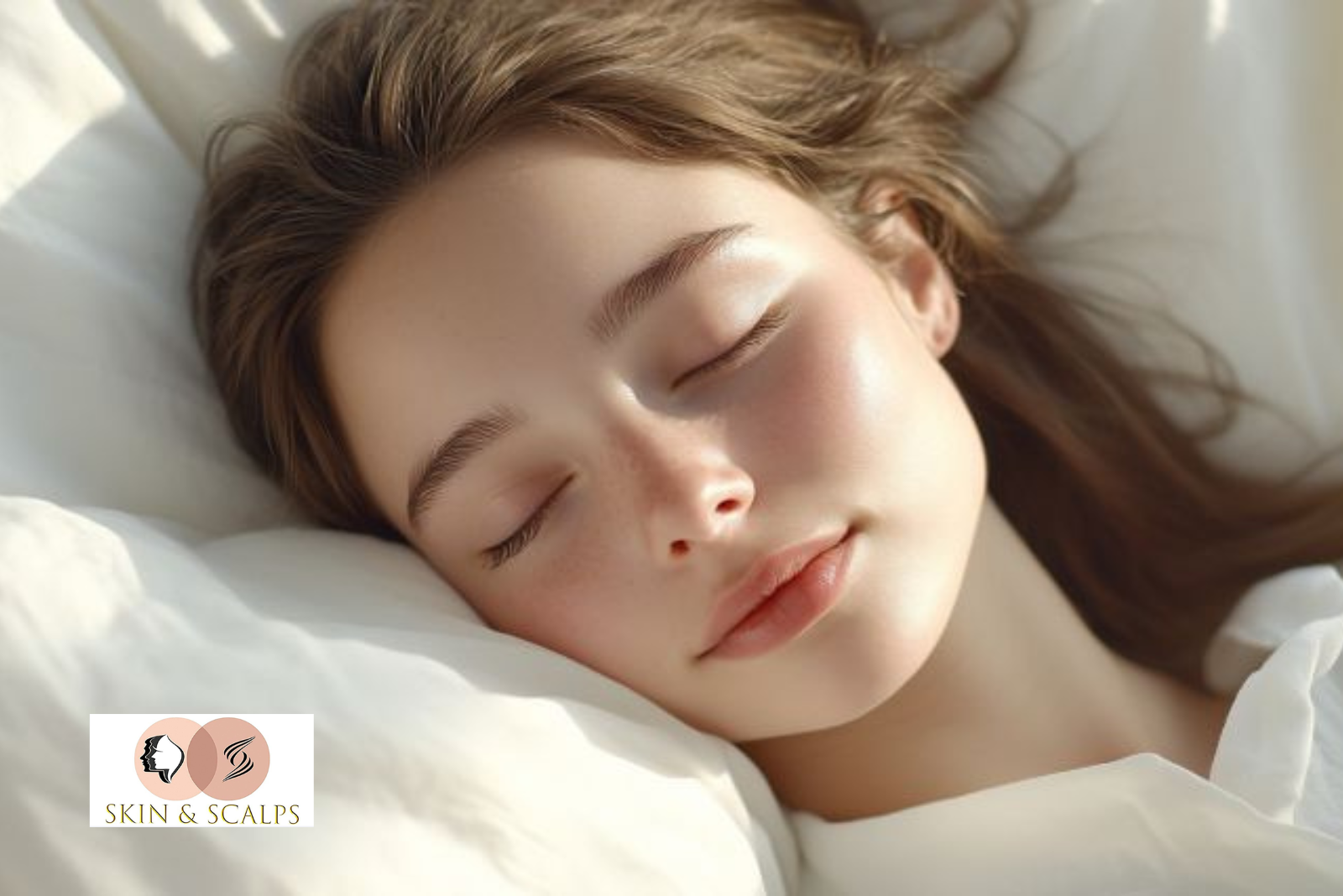Most people think of serums, creams, or supplements when they think of healthy hair and glowing skin. However, sleep is frequently disregarded despite being one of the most effective beauty treatments. A good night’s sleep revitalizes the body, clears the mind, and fixes the skin and hair from the inside out. We always remind our patients that the rejuvenating benefits of a sound sleep cannot be replaced by any skincare regimen. Today’s fast-paced world has made getting less sleep all but normal. Insufficient sleep, however, soon shows up in the skin and hair. So, let’s look at how sleep impacts your appearance and why it’s so important.
How Sleep Impacts Skin Health
Your body functions like a repair shop while you sleep. At night, skin cells regenerate more quickly, helping in the healing of daily damage from stress, pollution, and sunlight. This natural repair process makes skin look fresher and more radiant in the morning. During deep sleep, collagen production also increases. The protein that keeps skin plump and firm is called collagen. Collagen levels drop when you don’t get enough sleep, which eventually causes sagging and fine lines. Regular sleep deprivation can cause the skin to look older, dehydrated, and exhausted. During the night, blood flow to the skin also gets better. You wake up with a natural, healthy glow because of improved circulation. Conversely, getting too little sleep can make your skin look dull and uneven.
The Connection Between Sleep and Hair
Just like your skin, your hair relies on sleep for repair and growth. When you rest, your body directs nutrients and oxygen to the scalp. This strengthens hair strands from the root and supports hair follicles. Lack of sleep disrupts hormone balance. High levels of stress hormones, such as cortisol, can inhibit hair growth and even cause shedding. This imbalance may eventually lead to premature greying or thinning hair. Protein synthesis, which is necessary for the synthesis of keratin, is also influenced by deep sleep. Lack of sleep degrades the quality of hair because keratin makes up the structure of hair. When you don’t get enough sleep, you might notice more breakage or a lack of shine.
Common Signs of Sleep Deprivation on Skin and Hair
Lack of sleep is difficult to hide. The following are a few common visible effects:
- Dark Circles and Puffy Eyes: Under-eye shadows and swelling are caused by reduced blood flow and fluid imbalance.
- Dry, Dull Skin: Lack of sleep causes the skin to become dehydrated, which makes it flaky and rough.
- Acne Breakouts: Inflammation from inadequate sleep and hormonal imbalance can exacerbate acne.
- Premature Wrinkles: Aging signs appear sooner when collagen production is lower.
- Hair Shedding: Stress brought on by sleep deprivation interferes with the cycles of hair growth.
- Brittle Strands: Weak keratin formation leads to fragile, breakable hair.
You can improve the quality of your sleep before long-term damage is done by recognizing these symptoms early on.
How Much Sleep Do You Really Need?
The average adult needs seven to nine hours of good sleep every night. But it goes beyond the quantity of hours. Sleep quality is equally important. The real healing and rejuvenation occur during deep sleep stages. Your body clock can be regulated by going to bed and waking up at the same time every day. A consistent sleep schedule ensures that your skin and hair benefit from uninterrupted repair cycles.
Tips for Better Sleep and Beauty
-
Nighttime Routine: You can help your body relax by taking a warm shower, drinking herbal tea, or reading a light book.
-
Blue Light Exposure: Stay clear of using phones or laptops right before bed because screens disrupt the production of melatonin.
-
Cool and Dark Rom: Comfy surroundings promote deeper and quicker sleep.
-
Eat Smart: Spicy or heavy meals can cause sleep disturbances. Make lighter food choices. Incorporate sleep-promoting nutrients such as magnesium.
-
Manage Stress: Meditation, deep breathing techniques, and mild stretching can lower cortisol levels and promote sound sleep.
The Value of Your Beauty Sleep
Your body balances hormones, fortifies your immune system, and repairs wounds while you sleep. And, the external appearance of your skin and hair is directly impacted by these internal processes. Therefore, the term “beauty sleep” is not just a catchphrase; it is supported by science. We always advise our patients to consider sleep as a vital part of their hair and skincare regimen. Expensive creams and treatments won’t work if your body doesn’t get enough sleep. You support all of the products and treatments you use by making sleep a priority.
Conclusion
Strong hair and healthy skin require a lot more than just products. They are predicated on sleep. A restful night’s sleep allows your body to repair, regenerate, and heal itself, making you appear youthful and invigorated. In contrast, sleep deprivation damages the health of the skin and hair and speeds up aging. You can make an investment in long-term beauty by improving your sleep hygiene. We believe that the path to glowing skin and healthy hair begins with something as simple yet powerful as rest. So tonight, put away your phone, dim the lights, and give your body the sleep it deserves. Your skin and hair will thank you.

